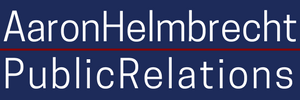What public relations professionals get wrong, according to these reporters.
By Aaron Helmbrecht
|
Public relations professionals and journalists share a complex relationship. On the one hand journalists and PR pros depend on each other. News releases account for as much as 50% of reporting by traditional media1 while media relations play a major role in most strategic communications plans. On the other hand, opportunism, incompetence, and laziness can end up testing the boundaries of professional courtesy. So what’s the media’s problem with PR pros? One issue according to Paul Farhi, media correspondent at the Washington Post, is that a lot of us don’t know what we’re doing.2 Consider for a moment someone who wants to become a lawyer. First, they are required to go to law school. After that, they must pass the bar exam and obtain a law license. Even after all that, if they are later determined to be incompetent to practice law, their license can be suspended or revoked. In public relations, literally anyone can be hired to do what we do. Not only is education and media training not a requirement in our profession, it’s often undervalued by employers. Like many others I’ve met in D.C., my media relations career began when our office’s public relations director abruptly quit, and the chief operating officer was too busy to hire someone new. Despite the fact that my professional experience consisted of a new bachelor's degree and about two weeks as the office assistant, I was given the job of managing a multi-state media campaign because I was well-liked in the office and always came to work on time. Although I eventually learned on the job, I made so many mistakes in my first year dealing with reporters that I wish I could find them now to apologize. This problem isn’t limited to those just starting their careers. According to a Bankrate.com report, employers aren’t looking for PR pros with graduate educations and those who are place a higher value on MBA applicants. Studies on public relations education have found that the mass communication curriculum offered by most business schools is inadequate at best and nonexistent at worst.3, 4 Another issue journalists have with PR pros is that a lot of us are inconsiderate. There may have been a time when PR pros needed to know who they were pitching and what beat they covered in order to make media lists. Today we have software services that will compile media lists for us. Why take the time to identify the handful of reports who might be interested in your press release when it’s so much easier to send it to thousands of reporters and let the ones who aren’t interested ignore it? Plus you never know; maybe George Stephanopoulos wants to do a story on about your upcoming county fair. From the public relations perspective, there aren’t any downsides to casting a wider net. This turns out this is a major reporter pet peeve. In the Newsweek article, I Read and Replied to Every Single PR Email I Received for a Week, columnist Zach Schonfeld shows how many public relations specialists blindly toss out their press releases like a fisherman with a net, while reporters end up with email boxes essentially full of spam releases. Speaking for the PR pros, Schonfeld and Farhi raise some legitimate concerns. You don’t necessarily need an advanced communications degree to make a career in public relations, but you should make every effort to learn and apply the skills you’ll need to be successful (reading this blog is a good start!). There’s nothing wrong with making mistakes if you learn something from them.
|

